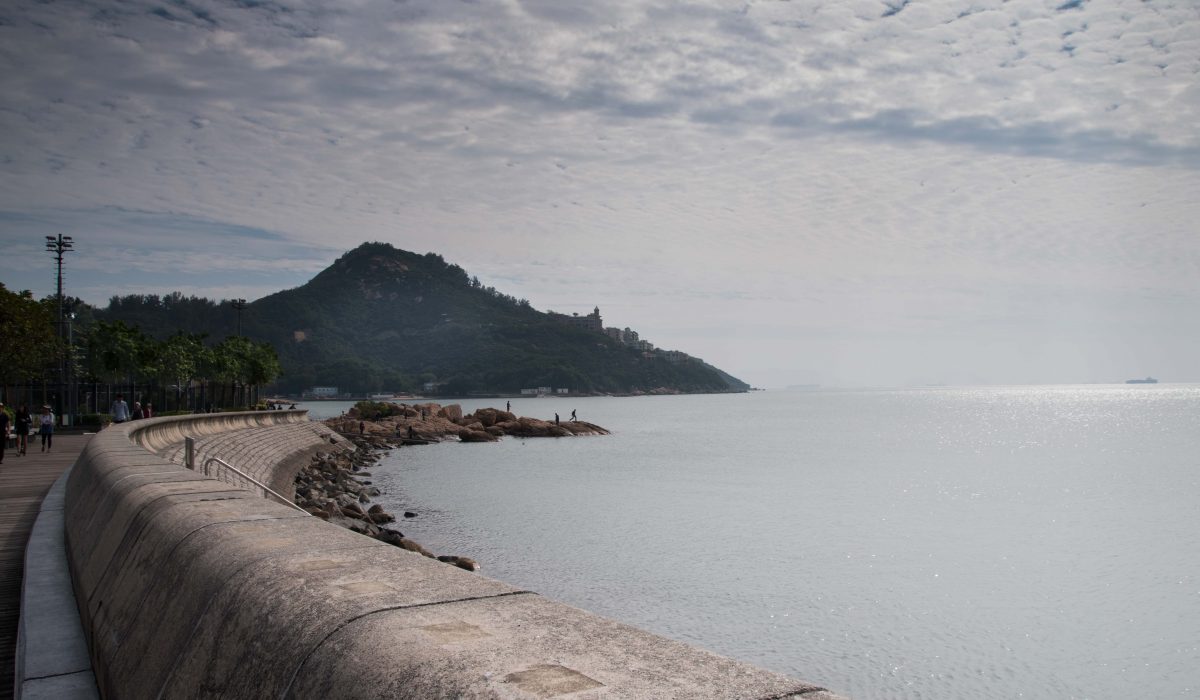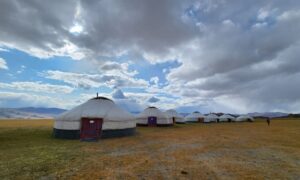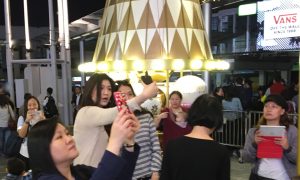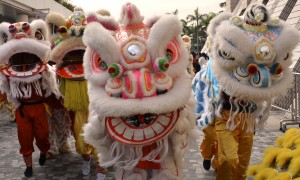
Who would have thought that going to Hong Kong meant spending a day at the beach town. Note that I didn’t say “the beach.” It wasn’t really warm enough for me to shed my clothes and spread out a towel. However, we were drawn to see what a beach town on the Southside of Hong Kong island would be like. We found golden sand, aquamarine sea and sprinkling of rocky islands.
It was great fun exploring Stanley located a 25 minute bus ride on the opposite side of Hong Kong island from high energy Victoria Harbor and the hustle and bustle of the major cosmopolitan city. I grew up in a beach town and spend a lot of time near one in Michigan so it felt a bit like home.

Stanley was a Chinese settlement long before the British arrived and set up a fort on the island in 1841.The local temple Tin Hau has documents indicating that the town was founded in 1771 by pirates. Later it was named for Lord Stanley, Secretary of State for the colonies. Until the 1960s it was a thriving fishing village.
Now it contains gated communities for some of Hong Kong’s wealthiest families while welcoming lots of Chinese tourists during the summer season.
I love the views with the huge expanses of water. Would have been fun to rent one of the condos and hang out here to see the variations in water and light. Didn’t get to do that.
Like beach towns the world over, there is lots of shopping. Stanley has a lively marketplace with a wild mix of stuff geared for both the Asian tourist and folks like me. I had fun buying small trinkets to take home to friends. Since we were there off season, it wasn’t particularly busy so I could really browse. I can imagine it would be packed during the high season.



One could even rescue a dog.

I smiled when I saw the these displays. Cute hangars huh?


We also saw an old building turned into a global shopping experience. Frankly it didn’t look like it belonged on a fishing village turned beach town. Turns out it was moved from Central on the other side of Hong Kong. Do notice the H & M sign, a big Swedish retail chain, hawking their wares in this old structure.

Murray House as it is called, is one of the oldest surviving public buildings on Hong Kong island, and is similar to other buildings of its era. Originally it was a British Army Barrack, dating from 1848. It was moved brick by brick from the Central part of Hong Kong to this location.
Seems like an odd thing to do, but at least they saved the historic structure.
We also saw lots of places to get ice cream and snacks along with full service restaurants. Wonder what thinking juice is?


I loved the touristy spot that mimics the many love locks on bridges around the world. A Chinese effort at being romantic. It’s a place to enjoy a “love moment.”



It really wasn’t any different than any beach town around the world.






Comments
2 CommentsJudy Bereza
Feb 6, 2017Susan, I particularly enjoy these posts where you peel back our assumptions about what a particular culture or area is like so we can see that we are so much more the same than we are different. “Love Locks” or “Love Bubbles” – the sentiment is universal!
Susan J. Smith
Feb 6, 2017Thanks, Judy, I appreciate your kind thoughts and comments on DesignDestinations.org. I agree about the Locks or Bubbles. Universal. It was fun to discover.